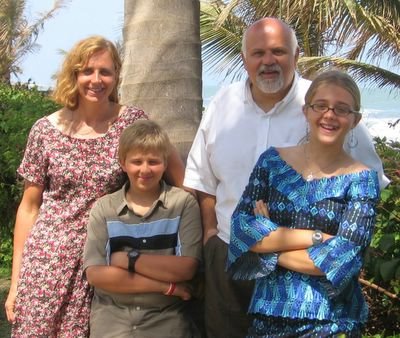The effects of the 25 year collapse of Liberia cannot be conceptualized. A quarter million citizens dead, the nation’s infrastructure and economy in ruins, the culture pulverized and unrecognizable. In two and half decades, Liberians destroyed Liberia, although most of the world never noticed. Liberians now bear the burden of rebuilding her. The UN says the country has been set back a hundred years, that even with 10% growth annually for the next 25 years, Liberia will only be where it was in 1980.
When we arrived in Foster Town, we expected to see the signs of a post-war African society: crippling poverty, destitution, unemployment, crime, and opportunistic corruption. As we have developed friends and worked with our neighbors to help heal this community, we have uncovered another casualty of this collapse—the common, ordinary trust of one Liberian toward another. Lost trust is perhaps the most damaging effect of the collapse of Liberia.
When we arrived in Foster Town, we expected to see the signs of a post-war African society: crippling poverty, destitution, unemployment, crime, and opportunistic corruption. As we have developed friends and worked with our neighbors to help heal this community, we have uncovered another casualty of this collapse—the common, ordinary trust of one Liberian toward another. Lost trust is perhaps the most damaging effect of the collapse of Liberia.
 We began to see the effects of this damage with the attempt to bring people together via a neighborhood organization and projects identified by the community- a marketplace and new wells. Once real progress was evident, mistrust reared its head. People began fighting, arguing, accusing each other of theft and dishonesty. Factions formed. Liberians undermined Liberians. The work stalled.
We began to see the effects of this damage with the attempt to bring people together via a neighborhood organization and projects identified by the community- a marketplace and new wells. Once real progress was evident, mistrust reared its head. People began fighting, arguing, accusing each other of theft and dishonesty. Factions formed. Liberians undermined Liberians. The work stalled.Now, while it is true that the Liberian collapse has deepened mistrust, I do not mean to suggest that it created mistrust. Mistrust is woven into human nature. By nature, Liberians are no more mistrustful than, say, people from Michigan. But back in Michigan, when our neighborhood fails to come together in unity, or when gossip and backbiting wreck an endeavor, or when someone we know cheats his neighbor, we end up telling ourselves that’s just the way things are. We grumble a bit, and then we take advantage of our insulating treasure. We lock our doors, turn on the TV or drink a beer or pick up the bible or find some other cushion, and we forget it. It doesn’t really matter anyway.
 In Foster Town Liberia, mistrust matters. Mistrust means no clean water. Mistrust means sick babies and hungry kids. Mistrust means family violence and rogues seizing the opportunities. Mistrust means a needed marketplace stalls mid-construction. Mistrust immediately and directly affects the quality of everyone’s life. Without rebuilding trust, Foster Town and Liberia cannot recover.
In Foster Town Liberia, mistrust matters. Mistrust means no clean water. Mistrust means sick babies and hungry kids. Mistrust means family violence and rogues seizing the opportunities. Mistrust means a needed marketplace stalls mid-construction. Mistrust immediately and directly affects the quality of everyone’s life. Without rebuilding trust, Foster Town and Liberia cannot recover.Fortunately, no one knows this better than some of our Liberian neighbors. The most wise hear Christ’s call to “love one another, forgive even your enemies.” The wisest among us are calling neighbors to come together, to be unified in spirit. Recent meetings have ended in Liberians embracing Liberians, with new resolve to join forces for the sake of a better Foster Town. The work restarts.
This will not be easy work. More conflict lies dormant, and as the market gets built and new wells get dug, the dormant conflicts promise to emerge. However, only when conflicts emerge can we address them and work toward healing. So we begin to see the Genius behind the call to love one another: The work of rebuilding, of healing, of improving a community brings conflict by design. Only then can sources of conflict be addressed-- and transformed into understanding. And when we begin to understand one another, we begin to heal the trust the past 25 years tried to take.

A marketplace, wells-- and trust-- under construction. We'll keep you apprised.

